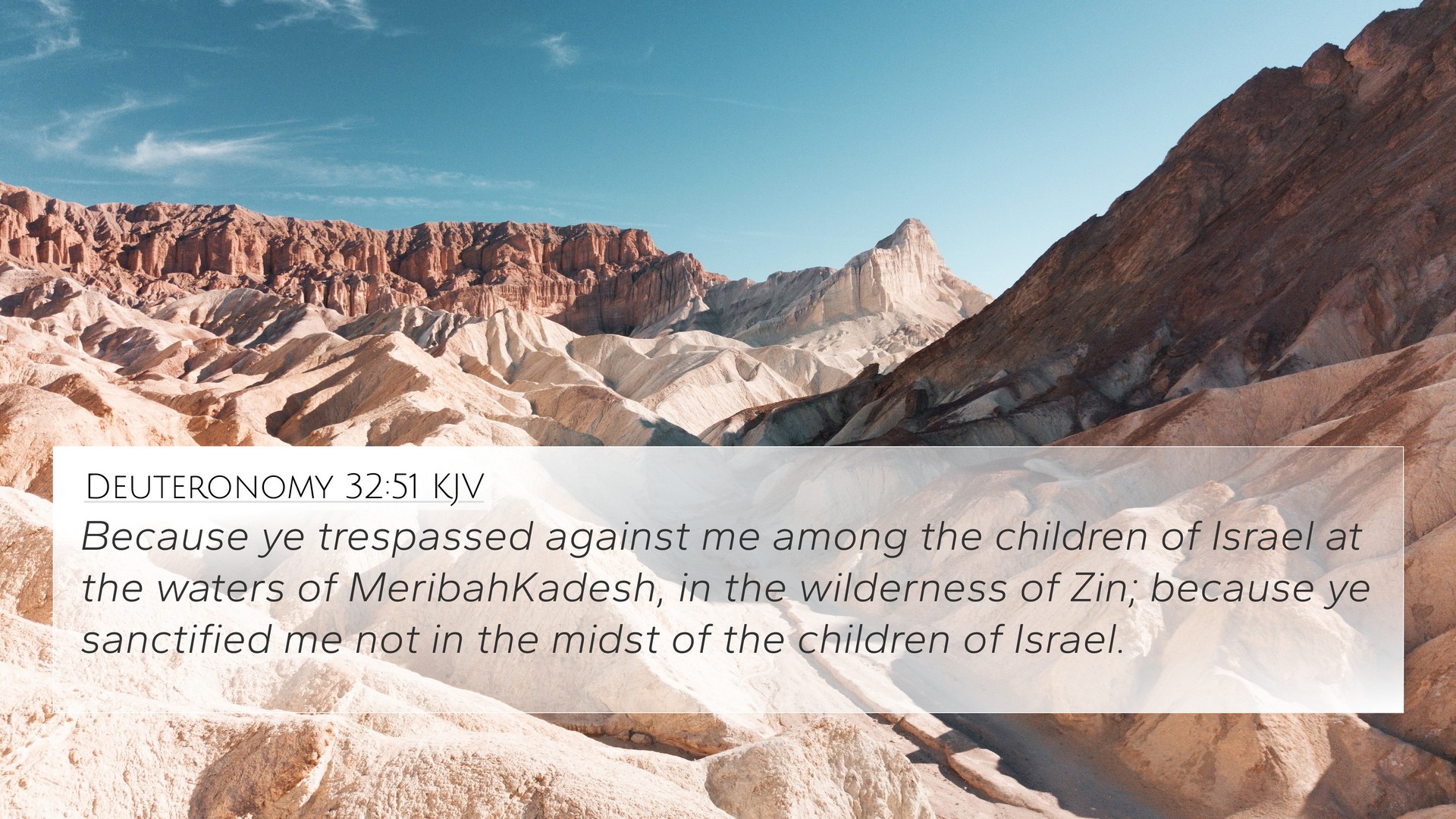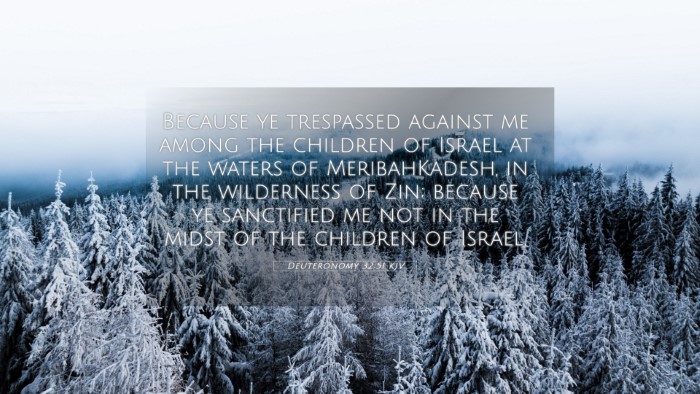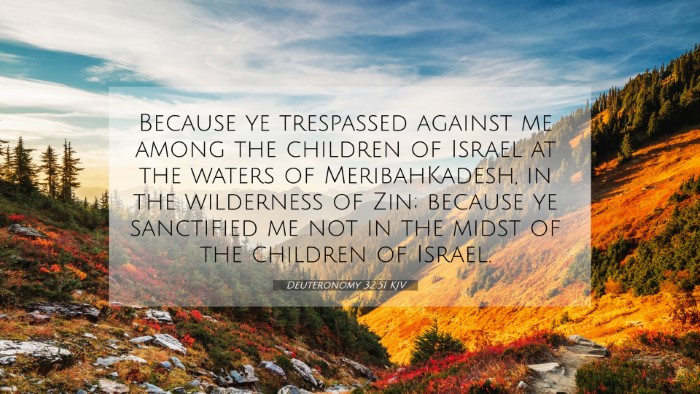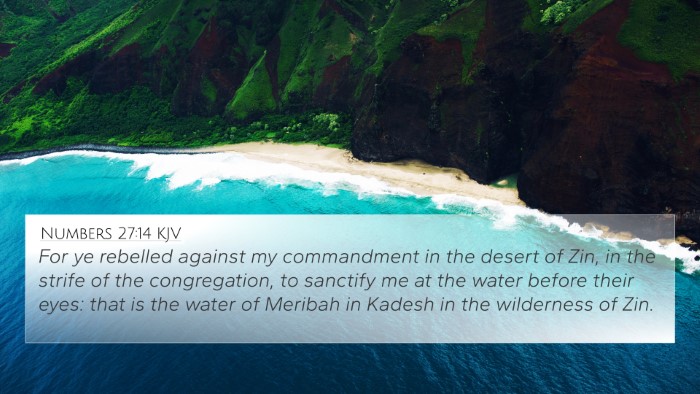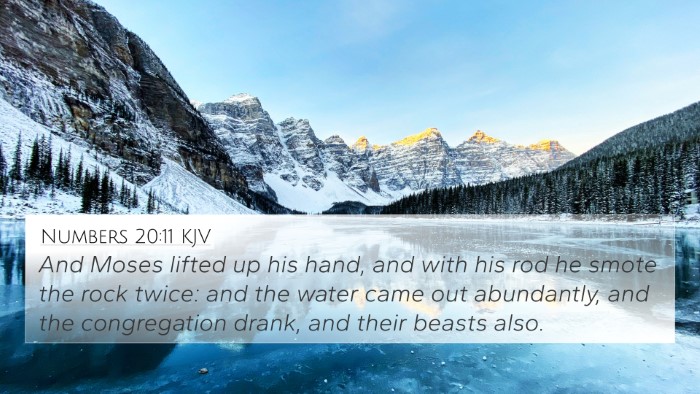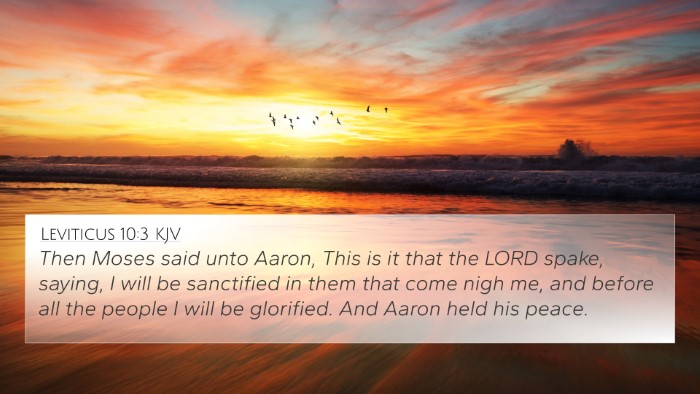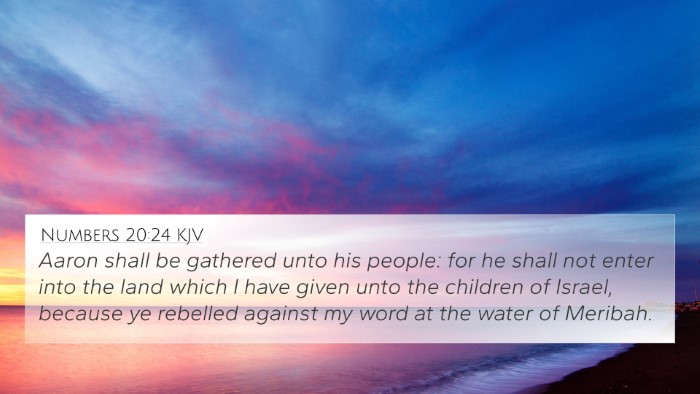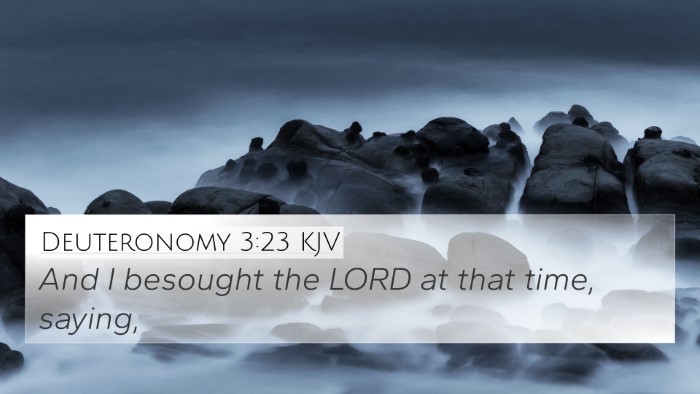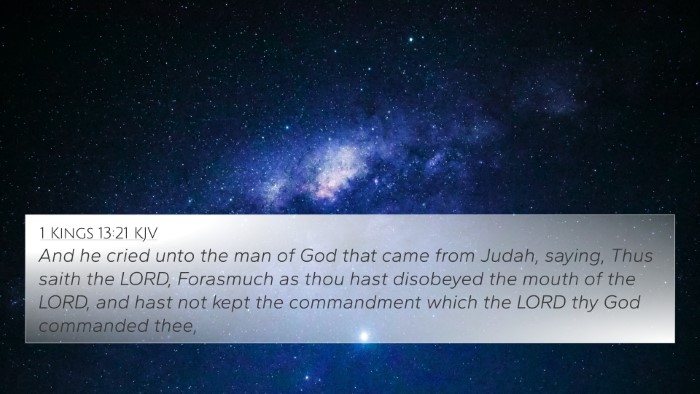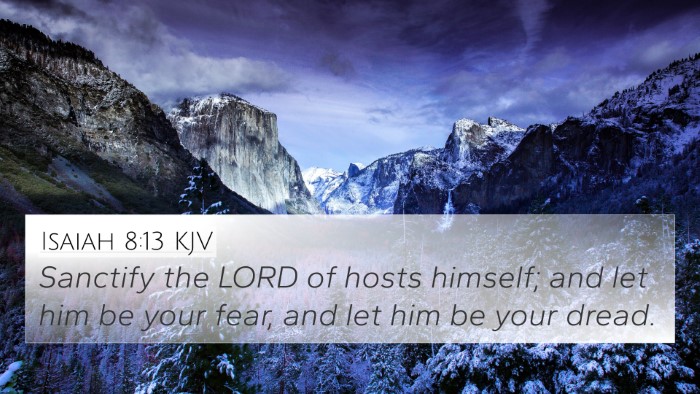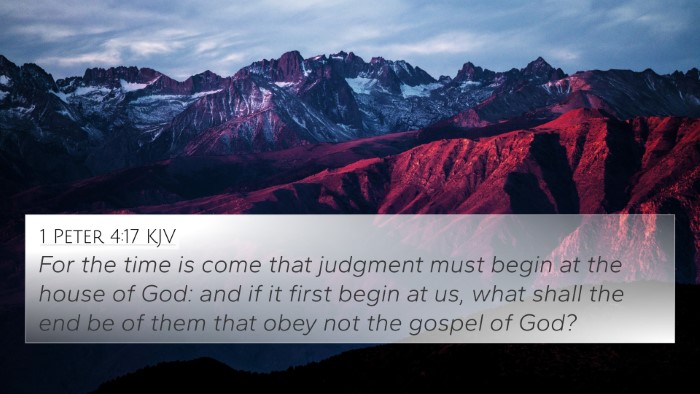Understanding Deuteronomy 32:51
Verse Reference: Deuteronomy 32:51
"Because ye trespassed against me among the children of Israel at the waters of Meribah-Kadesh, in the wilderness of Zin; because ye sanctified me not in the midst of the children of Israel."
Verse Meaning and Commentary
Deuteronomy 32:51 captures a moment of divine admonition directed towards Moses for his failure to uphold God’s command before the people. This verse emphasizes the serious consequences of disobedience, particularly for those in leadership roles. It reflects on a significant event where Moses, under pressure from the Israelites, acted in a manner that did not reflect the sanctity of God's name. This is a vital lesson about the importance of obedience, sanctification of God, and the weight of leadership.
Key Insights from Public Domain Commentaries
- Matthew Henry:
Henry emphasizes that Moses’ sin was serious, not merely due to the act itself but because of his elevated position as leader. The failure to treat God as holy before others can lead to significant ramifications.
- Albert Barnes:
Barnes notes that the specific location, Meribah-Kadesh, is symbolic of Israel's rebellion and highlights the gravity and repetitive nature of Israel's transgressions against God’s commands.
- Adam Clarke:
Clarke reflects on the consequences of Moses' act: that although he was faithful in many ways, it was this act of disobedience combined with the emotional distress caused by Israel's complaints that led to God's judgment against him.
Cross-References: Connecting Bible Verses
This verse can be connected to several other passages that illustrate themes of disobedience, the importance of leadership, and the sanctity of God's name. Here are some relevant cross-references:
- Numbers 20:10-12: The account of Moses striking the rock, showing the direct consequence of his actions.
- Exodus 17:1-7: The initial incident at Meribah, demonstrating the people's rebellious nature.
- Psalms 106:32-33: A reflection on the rebellion at Meribah and how it displeased God.
- Isaiah 48:11: God’s declaration that His name must remain holy, correlating to Moses' failure to sanctify it.
- 1 Peter 1:15-16: The call for holiness, echoing the sanctification theme found in Deuteronomy 32:51.
- James 3:1: A warning about the stricter judgment that teachers and leaders face, similar in nature to Moses' plight.
- Deuteronomy 6:4-5: The call to love God wholly, emphasizing the necessity of honoring Him in all acts.
Thematic Bible Verse Connections
Deuteronomy 32:51 serves as a reminder of several biblical themes:
- Leadership Accountability: Leaders are held to a higher standard (James 3:1).
- Consequences of Disobedience: Direct consequences from God for failing to uphold His glory (Numbers 20:12).
- The Sanctification of God’s Name: God’s name must be treated with absolute reverence and honor (Isaiah 48:11).
- Rebellion and Consequences: The recurrent theme of Israel's disobedience and its repercussions (Psalms 106:32-33).
Exploring Connections Between Bible Verses
Listeners and learners are encouraged to engage in cross-referencing Bible study methods to explore these connections further.
Here are some methods for finding cohesive ties between scriptures:
- Use Bible Concordance: Helps locate keywords and themes.
- Online Cross-Reference Guides: Various tools can assist in navigating complex Bible texts.
- Comparative Studies: When analyzing different Biblical accounts, examining both the Old and New Testament connections can provide deeper insights.
Conclusion
In conclusion, Deuteronomy 32:51 serves not only as a historical admonition to Moses but as a timeless principle for us to reflect upon in our relationship with God. It teaches us about the importance of obedience, the serious nature of leadership, and the sanctification of the divine name. By engaging in thematic Bible verse connections and utilizing various cross-referencing tools, individuals can deepen their understanding of scripture and grow in their faith.
